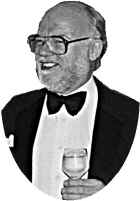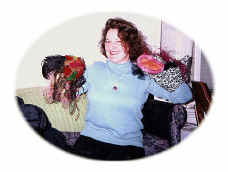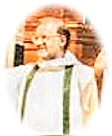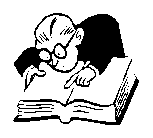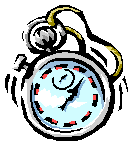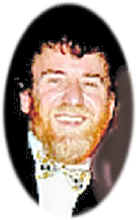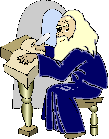Dearest creature in creation,
Studying English pronunciation,
I will teach you in my verse,
Sounds like corpse, corps, horse and worse-It will keep you, Susie, busy;
Make your head with heat grow dizzy;
Tear in eye your dress you'll tear-So shall I. Oh hear my prayer.
Pray console your loving poet,
Make my coat look new, dear, sew it.
Just compare heart, beard and heard,
Dies and diet, lord and word,
Sword and sward, retain and Britain.
(Mind the latter, how it's written).
Made has not the sound of bade,
Say - said, pay - paid, laid, but plaid.
Now I surely will not plague you
with such words as vague and ague,
But be careful how you speak,
Say break, steak, but bleak and streak.
Previous, precious; fuchsia, via;
Pipe, snipe, recipe and choir;
Cloven, oven; how and low;
Script, receipt; shoe, poem, toe,
Hear me say, devoid of trickery:
Daughter, laughter and Terpsichore;
Typhoid, measles, topsails, aisles;
Exiles, similes, reviles;
Wholly, holly, signal, signing;
Thames, examining, combining.
Scholar, vicar and cigar;
Solar, mica, war and far;
From desire-desirable; admirable from admire;
Lumber, plumber; bier but brier;
Chatham, brougham; renown but known;
Knowledge, done but gone and tone;
One, anemone, Balmoral;
Kitchen, lichen; laundry, laurel;
Gertrude, German; wind and mind;
Scene, Melpomene; mankind;
Tortoise, turquoise, chamois - leather;
Reading, reading, heathen, heather.
This phonetic labyrinth
Gives moss, gross, brook, brooch,
ninth and plinth.
Billet does not end like ballet;
Bouquet, wallet, mallet, chalet.
Blood and flood are not like food,
nor is mould like would and should.
Banquet is not nearly parquet,
Which is said to rhyme with "darky",
Viscous, viscount; load and broad;
Toward, to forward, to reward.
And your pronunciation's "O.K."
When you say correctly croquet;
Rounded, wounded; grieve and sieve;
friend and fiend; alive and live;
Liberty, library, heave and heaven;
Rachel, ache, moustache; eleven.
We say hallowed, but allowed;
People, leopard; towed but vowed.
Mark the difference, moreover,
Between mover, plover, Dover,
Leeches, breeches, wise, precise;
Chalice, but police and lice;
Camel, constable, unstable;
Principle, disciple, label;
Petal, penal and canal;
Wait, surmise, plait, promise, pal.
Suit, suite, ruin; circuit, conduit;
Rhyme with "shirk it" and "beyond it",
But it is not hard to tell,
Why it's pall-mall, but Pall Mall.
Muscle, muscular; gaol; iron;
Timber, climber; bullion, lion;
Worm and storm; chaise, chaos, chair;
Senator, spectator, mayor.
Ivy, privy; famous; clamour
and enamour rhyme with hammer.
Pussy, hussy and possess,
desert, but dessert, address.
Golf, wolf; countenance; lieutenants
Hoist, in lieu of flags, left pennants.
River, rival; tomb, bomb, comb;
Doll and roll and some and home.
Stranger does not rhyme with anger,
neither does devour with clangour.
Soul but foul, and gaunt, but aunt;
Font, front, wont, want, grand and grant.
Shoes, goes, does. Now first say: finger,
And then: singer, ginger, linger.
Real, zeal; mauve, gauze and gauge;
marriage, foliage, mirage and age.
Query does not rhyme with very,
Nor does fury sound like bury.
Dost, lost, post and doth, cloth, loath;
Job, job, blossom, bosom, oath.
Though the difference seems little,
We say actual, but victual.
Seat, sweat; chaste, caste; Leigh,
eight, height;
Put, nut; granite but unite.
Reefer does not rhyme with "deafer".
Feoffor does, and zephyr, heifer.
Dull, bull; Geoffrey, George; ate, late;
Hint, pint; senate, but sedate;
Scenic, Arabic, pacific.
Science, conscience, scientific;
Tour, but our, and succour, four;
Gas, alas and Arcansas.
Sea, idea, guinea, area.
Psalm; but malaria,
Youth, south, southern; cleanse,
but clean;
Doctrine, turpentine, marine,
Compare alien with Italian,
Dandelion with battalion,
Sally with ally, yea, ye
Eye, I, oy, aye. Whey, key, quay.
Say aver, but ever, fever,
Neither, leisure, skein, receiver,
Never guess - it's not safe.
We say calves, valves, half, but Ralf.
Heron, granary, canary;
Crevice and device and eyrie;
Face but preface, but efface;
Phlegm, phlegmatic; ass, glass bass;
Large, but target, gin, give, verging,
Ought, out, joust and scour, but scourging,
War, earn; and wear and tear
do not rhyme with "here" and "there" but "ere".
Seven is right, but so is even;
Hyphen, roughen, nephew, Stephen;
Monkey, donkey; clerk and jerk;
Asp, grasp, wasp; and cork and work.
Pronunciation- think of Psyche -
Is a paling, stout and spiky,
Won't it make you lose your wits,
Writing "groats" and saying "grits".
It's a dark abyss, or tunnel,
strewn with stones, like rowlock, gunwale
Islington and Isle of Wight,
Housewife, verdict and indict.
Don't you think so, reader, rather
Saying lather, bather, father?
Finally: which rhymes with "enough"
Though, through, plough, cough, hough,
or tough?
Hiccough has the sound of "cup".
My advice is………..give it up!!!
Given in 1974 to Class RII 4 at Stockholm's Higher General Secondary School for Girls,Norrmalm
Author: G. Nolst Trenité
|


